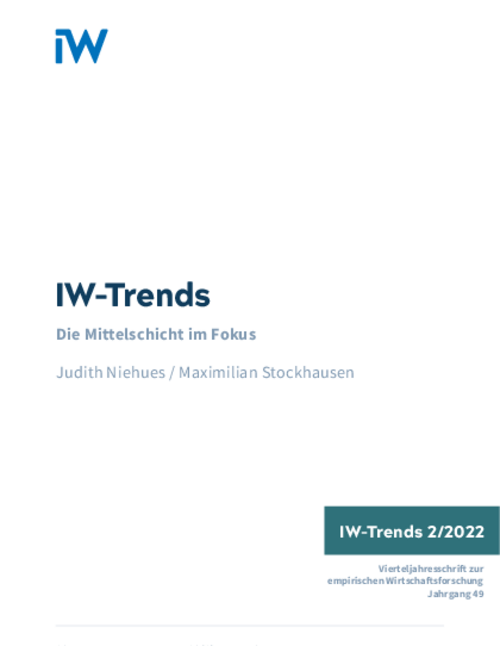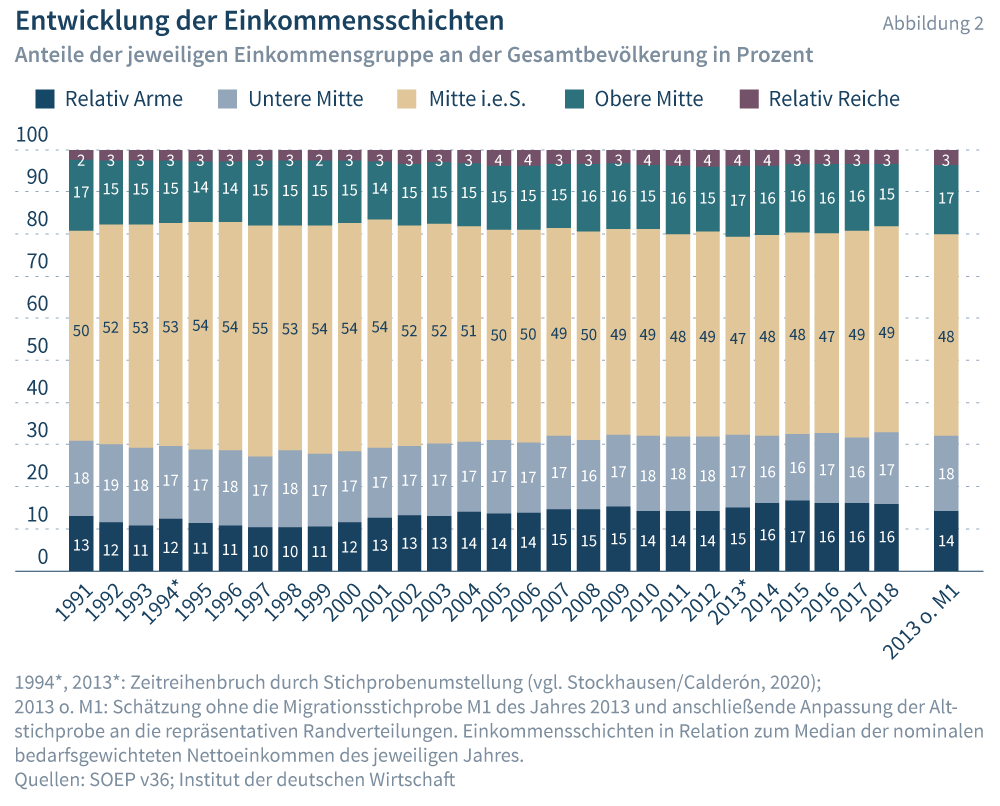In 2018, roughly every second German was a member of the middle class as measured by income, a proportion which has barely changed for more than a decade. However, the lower income threshold of this middle-income group has risen - an indication of increased prosperity.

A Focus on the Middle Class - Demarcation, Development and Mobility

In 2018, roughly every second German was a member of the middle class as measured by income, a proportion which has barely changed for more than a decade. However, the lower income threshold of this middle-income group has risen - an indication of increased prosperity.
In 2018, a one-person household with a monthly disposable income of 1,620 euros or more qualified as middle-income, whereas the equivalent figure in 2013 was around 1,450 euros in 2018 prices. Social mobility indicators show considerable stability in middle-class membership: in any two consecutive years, around 80 per cent remain in the middle-income category, with less than 3 per cent falling from this group directly into being at risk of poverty. Both percentages have remained largely stable since Reunification, suggesting that the risk of falling out of the middle class has scarcely changed since the 1990s. On the other hand, the number of those moving up from lower income brackets into the middle class has declined somewhat. A generational comparison shows that young adults especially are less likely to be middle class than, for example, the baby boomers at the same age. Some of these changes are probably related to the longer periods that younger cohorts spend in training, changes in the labour force participation rates and working hours of men and women, the ageing of society and a higher proportion of people living alone. That these factors do not constitute an equity deficit per se is an argument supported by the results of surveys on people’s subjective assessments. At least until the Corona crisis these painted an extremely positive picture of how the middle class feels and also indicated a marked decline in the degree to which all income brackets were concerned about their financial situation. How the Corona pandemic and the current war between Russia and Ukraine will affect these positive developments remains an open question that we will only be able to answer in a few years’ time.


A Focus on the Middle Class - Demarcation, Development and Mobility

More on the topic

A Macroeconomic Analysis of Wage-Price Spirals
The subject of this Analysis is the forms that wage-price spirals can take and how they influence macroeconomic stability and inflationary trends in Germany.
IW
IW Distribution Report 2023: Attitudes towards social mobility
Fundamentally linked to the social market economy is the idea that everyone has the opportunity for social advancement, regardless of their social background, and that children should be better off than their parents.
IW